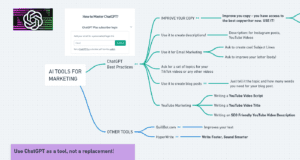Are you a business owner looking to take your ventures to the next level? If so, developing a growth mindset is essential. In this article, we will explore the concept of a growth mindset and its importance for business owners. By adopting a growth mindset, you can unlock your potential for success and overcome challenges. With a focus on continuous learning, resilience, and adaptability, you can build a thriving business that reaches new heights. So, let's dive into the world of growth mindset and discover how it can transform your entrepreneurial journey.

How a Growth Mindset Can Benefit Business Owners
Increased Resilience and Adaptability
A growth mindset can greatly benefit business owners by increasing their resilience and adaptability. When faced with challenges and setbacks, individuals with a growth mindset are more likely to persevere and find alternative solutions. They view obstacles as opportunities for growth and learning, rather than insurmountable roadblocks. This mindset allows business owners to bounce back quickly from failures or downturns, embracing change and adapting their strategies to meet new demands.
Expanded Creativity and Innovation
Adopting a growth mindset can also unleash creativity and foster innovation in business owners. By believing in their ability to develop new skills and improve, individuals with a growth mindset are more willing to explore novel ideas and think outside of the box. They embrace experimentation and see setbacks as valuable feedback rather than personal failures. This mindset encourages business owners to continuously innovate and find unique solutions to business challenges, which can lead to greater success.
Improved Problem-Solving Skills
Business owners with a growth mindset tend to have improved problem-solving skills. They approach problems from a perspective of growth and learning, seeking to understand the underlying causes and finding effective solutions. Instead of getting stuck in a fixed mindset where they believe their abilities are fixed and unchangeable, individuals with a growth mindset are open to new strategies and approaches. They are not afraid to seek help or advice and are more likely to collaborate with others to solve complex problems.
Enhanced Decision-Making Abilities
A growth mindset can also enhance business owners' decision-making abilities. By embracing growth and continuous learning, individuals with a growth mindset are more willing to analyze information, consider different perspectives, and evaluate potential risks and benefits before making decisions. This mindset allows business owners to approach decision-making with an open and curious mindset, exploring various possibilities and seeking innovative solutions. It also enables them to learn from both successes and failures, continuously improving their decision-making skills over time.
Understanding the Concept of Growth Mindset
Differentiating Growth Mindset from Fixed Mindset
To truly understand the concept of growth mindset, it is important to differentiate it from a fixed mindset. A fixed mindset refers to the belief that abilities and talents are innate and unchangeable. Individuals with a fixed mindset often avoid challenges, fear failure, and view setbacks as a reflection of their limitations. In contrast, a growth mindset is the belief that abilities and intelligence can be developed through dedication, effort, and a willingness to learn. Those with a growth mindset embrace challenges, see failure as an opportunity for growth, and perceive setbacks as temporary obstacles on their path to success.
Beliefs and Core Principles of a Growth Mindset
The beliefs and core principles of a growth mindset lay the foundation for its application in business. Embracing a growth mindset involves understanding that abilities and talents can be developed through effort, practice, and learning. It also involves valuing the process of growth and development over immediate success, recognizing that failure is a natural part of the learning journey. Additionally, individuals with a growth mindset believe that everyone has the capacity to learn and improve, and that challenges and setbacks can be overcome with perseverance, dedication, and continuous learning.
Overcoming Limiting Beliefs and Embracing Growth
Developing a growth mindset requires overcoming limiting beliefs that may be holding business owners back. These limiting beliefs often stem from past experiences, societal pressures, or self-doubt. To overcome these beliefs, business owners can start by cultivating self-awareness and recognizing when they are falling into a fixed mindset. They can challenge their negative self-talk and reframe their thoughts to focus on growth and learning opportunities. Cultivating a growth mindset also involves seeking out resources, mentors, and opportunities for continuous learning to expand their abilities and embrace growth fully.
Developing a Positive Mindset for Growth
Cultivating Self-Awareness and Self-Reflection
Cultivating self-awareness and engaging in regular self-reflection are essential steps in developing a positive mindset for growth. By becoming aware of their own thoughts, emotions, and behaviors, business owners can identify any fixed mindset tendencies and proactively shift their perspective. Self-reflection allows them to understand their strengths, weaknesses, and areas for growth, fostering a sense of self-improvement and a commitment to continuous learning.
Adopting a Growth-Oriented Language
The language we use can shape our mindset and beliefs. To develop a positive mindset for growth, business owners can adopt a growth-oriented language. This involves replacing limiting phrases such as “I can't” or “I'm not good at” with more empowering statements like “I can learn” or “I can improve in this area.” By choosing language that emphasizes growth and learning, business owners can rewire their thinking and reinforce their commitment to developing a growth mindset.
Building a Strong Support Network
Building a strong support network is crucial for fostering a positive mindset for growth. Surrounding yourself with like-minded individuals who share your commitment to growth and learning can provide encouragement, inspiration, and accountability. Networking with other business owners, joining mastermind groups or professional networks, and seeking out mentors or coaches can offer valuable guidance and support on your journey towards developing a growth mindset.

Strategies to Foster a Growth Mindset
Embracing Challenges and Viewing Failure as Opportunities
To foster a growth mindset, it is essential to embrace challenges and view failure as opportunities for growth. Instead of avoiding difficult tasks or taking the easy way out, business owners with a growth mindset actively seek out challenges that push their limits and expand their skills. They understand that failure is a natural part of the learning process and an opportunity to gain valuable insights and make necessary adjustments. By reframing failure as a stepping stone towards success, business owners can develop a resilient and growth-oriented mindset.
Setting Realistic and Stretch Goals
Setting both realistic and stretch goals is another strategy to foster a growth mindset. Realistic goals create a sense of achievement and motivation, while stretch goals challenge business owners to step outside their comfort zones and push their limits. By setting a combination of achievable and challenging goals, business owners can cultivate a growth mindset by continuously striving for improvement and progress. It is important to monitor progress, celebrate milestones, and adjust goals as necessary, ensuring a balance between challenge and attainability.
Seeking Continuous Learning and Development
A commitment to continuous learning and development is a key strategy in fostering a growth mindset. Business owners can actively seek out learning opportunities, whether through formal education, online courses, workshops, or industry conferences. They can also stay updated with industry trends, news, and best practices to expand their knowledge and skills. By adopting a mindset of curiosity and a willingness to learn from different sources, business owners can fuel their growth mindset and uncover new possibilities for success.
Practicing Perseverance and Grit
Perseverance and grit are essential qualities for developing a growth mindset. Business owners must cultivate the ability to persist in the face of challenges, setbacks, and failures. They need to recognize that success often requires sustained effort, patience, and determination. By adopting a mindset of perseverance and embracing the concept of “grit,” business owners can develop resilience and a tenacious approach to their goals. This mindset enables them to view setbacks as temporary and motivates them to keep moving forward despite obstacles.
Developing a Growth Mindset in Business Operations
Encouraging and Rewarding Employee Growth Mindsets
Developing a growth mindset within a business requires encouraging and rewarding employee growth mindsets. Business owners can create an environment that promotes learning, growth, and personal development by regularly recognizing and celebrating employees' efforts and achievements. They can also provide opportunities for skill development, training, and professional growth. By valuing and cultivating a growth mindset in their employees, business owners can foster a culture of continuous learning and improvement.
Creating a Culture of Learning and Improvement
Creating a culture of learning and improvement is crucial for developing a growth mindset in business operations. Business owners can foster this culture by promoting a safe and supportive environment that encourages employees to take risks, share ideas, and learn from their mistakes. They can implement regular knowledge-sharing sessions, where employees can exchange insights and experiences to promote continuous learning. By prioritizing learning and improvement, business owners set the foundation for a growth mindset that permeates throughout the entire organization.
Promoting Collaboration and Open Communication
Promoting collaboration and open communication is another effective way to develop a growth mindset in business operations. By fostering an environment where individuals feel comfortable sharing their ideas, asking for help, and providing constructive feedback, business owners encourage a mindset of continuous improvement and innovation. Collaboration allows employees to learn from each other, pool their strengths, and collectively solve complex problems. Open communication channels ensure that ideas flow freely and that everyone's input is valuable and respected.
Overcoming Obstacles and Barriers
Identifying and Addressing Limiting Beliefs
To overcome obstacles and barriers to a growth mindset, business owners must first identify and address their limiting beliefs. These beliefs often stem from past experiences, fear of failure, or a fixed mindset. Business owners can challenge their limiting beliefs by engaging in self-reflection and examining the evidence that supports or refutes those beliefs. They can seek support from mentors, coaches, or therapists to gain a fresh perspective and develop strategies for replacing limiting beliefs with empowering ones.
Dealing with Fear of Failure
Fear of failure is a common obstacle to developing a growth mindset. Business owners may worry about the potential consequences of failure, such as financial loss or reputational damage. To overcome this fear, it is important to reframe failure as an opportunity for growth and learning. Business owners can remind themselves of past successes that were born out of failures and recognize that failure is not a reflection of their worth or abilities. By embracing failure as a stepping stone towards success, business owners can overcome their fear and develop a growth mindset.
Managing Imposter Syndrome
Imposter syndrome, characterized by feelings of self-doubt and a belief that one's accomplishments are undeserved or the result of luck, can hinder the development of a growth mindset. Business owners experiencing imposter syndrome may doubt their abilities and feel inadequate despite evidence of their success. To manage imposter syndrome, it is important to acknowledge and challenge negative self-talk. Business owners can practice self-compassion, celebrate their achievements, and remind themselves of their capabilities. Seeking support from mentors or a supportive network can also provide reassurance and perspective.
Handling Setbacks and Challenges
Setbacks and challenges are inevitable in business, and they can test the resilience of business owners' growth mindset. It is crucial to develop strategies for handling setbacks and challenges in a growth-oriented manner. Business owners can view setbacks as opportunities for learning and improvement, examining what went wrong and how they can adjust their strategies for future success. It is also important to practice self-care during challenging times, seeking support from others, and maintaining a positive mindset. By adopting a growth mindset approach to setbacks and challenges, business owners can navigate these obstacles with determination and resilience.
Measuring and Tracking Growth
Defining Key Performance Indicators (KPIs)
Measuring and tracking growth requires the identification and definition of key performance indicators (KPIs). KPIs are measurable metrics that reflect the progress and success of business operations. By defining specific KPIs that align with business goals, owners can track their growth over time and identify areas for improvement. These KPIs can include financial metrics, customer satisfaction ratings, employee engagement levels, or any other data points that provide valuable insights into business performance.
Implementing Regular Progress Reviews
Regular progress reviews are essential for measuring growth and ensuring accountability. Business owners can establish a systematic process for reviewing progress against established KPIs. This can involve regular meetings, either monthly or quarterly, to assess performance, identify areas for improvement, and set new goals. Progress reviews provide an opportunity to celebrate achievements, recognize challenges, and make necessary adjustments to strategies and plans. By implementing regular progress reviews, business owners can monitor their growth and maintain focus on their growth mindset.
Utilizing Technology and Data Analytics
Utilizing technology and data analytics can enhance the measurement and tracking of growth. With the help of various software tools and platforms, business owners can collect and analyze data to gain insights into their business operations. By leveraging data analytics, they can identify trends, patterns, and areas for improvement more effectively. Technology can also automate the tracking of KPIs, freeing up time and resources for business owners to focus on driving growth and maintaining a growth mindset.
Seeking Support and Guidance
Engaging in Growth Mindset Coaching
Engaging in growth mindset coaching can provide valuable support and guidance for business owners. Growth mindset coaches specialize in helping individuals cultivate a growth mindset and overcome obstacles that may be holding them back. A growth mindset coach can provide personalized strategies, tools, and exercises to foster a growth mindset and navigate challenges. They can also offer accountability and motivation, ensuring that business owners stay committed to their growth journey.
Joining Mastermind Groups or Professional Networks
Joining mastermind groups or professional networks can offer business owners a valuable support system for their growth mindset journey. These groups consist of like-minded individuals who are dedicated to personal and professional development. By participating in mastermind groups or professional networks, business owners gain access to a community that shares insights, experiences, and resources. They can learn from others, receive feedback, and find inspiration and support to maintain their growth mindset.
Mentoring and Learning from Successful Business Owners
Mentoring and learning from successful business owners can provide invaluable guidance and inspiration. Business owners can seek out mentors who have successfully developed a growth mindset and achieved significant business growth. Mentors can offer practical advice, share their experiences, and provide a sounding board for challenges and ideas. Learning from successful business owners also involves studying their strategies, attending their seminars or workshops, and adopting best practices that align with a growth mindset.
Building a Growth Mindset Company Culture
Creating a Vision and Mission Aligned with Growth
Building a growth mindset company culture starts with creating a vision and mission that is aligned with growth. Business owners must articulate the importance of growth and continuous improvement in their organization's purpose and values. By clearly communicating the focus on growth, business owners set the tone for a growth-oriented culture that permeates throughout the company. This vision and mission provide a shared understanding and commitment to developing a growth mindset.
Fostering Continuous Learning and Development
Developing a growth mindset company culture requires fostering continuous learning and development. Business owners can provide opportunities for employee training and skill development, both internally and externally. They can allocate resources for professional development initiatives and implement mentorship or coaching programs. By prioritizing continuous learning, business owners demonstrate their commitment to growth and provide employees with the tools and support needed to develop their own growth mindsets.
Promoting Innovation and Adaptability
Promoting innovation and adaptability is essential for cultivating a growth mindset in a company culture. Business owners can encourage employees to think outside the box, take calculated risks, and challenge conventional thinking. They can create a safe space for experimentation and reward innovative ideas and problem-solving approaches. By promoting adaptability, business owners show that change is embraced as an opportunity for growth and improvement, fostering a growth mindset throughout the organization.
Sustaining and Reinforcing a Growth Mindset
Celebrating Achievements and Milestones
Celebrating achievements and milestones is crucial for sustaining and reinforcing a growth mindset. Business owners can acknowledge and reward individual and team accomplishments, fostering a sense of pride and motivation. Celebrations can take many forms, such as recognition events, bonus incentives, or public acknowledgments. By consciously celebrating achievements, business owners reaffirm the value of growth, hard work, and perseverance, reinforcing a growth mindset among employees and themselves.
Embracing Change and Emphasizing Adaptability
To sustain a growth mindset, business owners must embrace change and emphasize adaptability in their operations. They can encourage employees to view change as an opportunity for growth and challenge them to adapt quickly to new circumstances. By modeling adaptable behavior and communicating the benefits of embracing change, business owners create an environment where a growth mindset can flourish. This emphasis on adaptability reinforces the belief that growth occurs through learning and adapting to ever-changing business landscapes.
Encouraging Feedback and Iterative Improvement
Encouraging feedback and iterative improvement is vital for sustaining a growth mindset. Business owners can create feedback channels that allow employees to provide input and suggestions on processes, strategies, and operations. They can foster a culture of open communication, where feedback is seen as an opportunity for growth rather than criticism. By actively seeking feedback and encouraging iterative improvement, business owners demonstrate a commitment to continuous learning and reinforce the importance of a growth mindset in achieving long-term success.
In conclusion, adopting a growth mindset can greatly benefit business owners. It enhances their resilience and adaptability, expands creativity and innovation, improves problem-solving skills, and enhances decision-making abilities. Understanding the concept of growth mindset, developing a positive mindset for growth, and implementing strategies to foster a growth mindset are crucial steps in this journey. Overcoming obstacles, measuring and tracking growth, seeking support, and building a growth mindset company culture are essential for sustained growth mindset development. By cultivating a growth mindset, business owners can unlock their full potential, thrive in the face of challenges, and achieve long-term success in their ventures.







